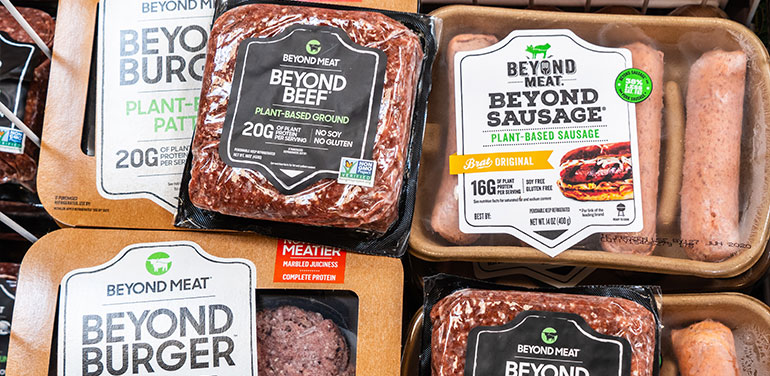



Article by: Hari Yellina
c It has also been suggested that the food authority reverse its decision to allow plant proteins and non-dairy milks to utilize animal descriptors. The Australian Competition and Consumer Commission should take action on the close proximity of real beef and copycat plant-based proteins in supermarkets, according to the enquiry into meat definitions and other animal products report, which was released this afternoon. In addition, the Australian government should ensure that this necessary regulatory framework applies to cultured meat products in advance of their release into the market.
The red meat sector has praised the senators’ stern stance as vindication of the protracted effort to prevent vegan food manufacturers from ‘piggybacking’ on the reputation of Australian beef, lamb, poultry, and dairy. The guidelines, according to retail food specialists, will have significant marketing ramifications for the plant protein and non-dairy’milk’ industries. Indeed, some manufacturers of these items stated throughout the hearing that if such rules were ever enacted, they would leave Australia. The committee has been receiving written submissions and holding public hearings for the past eight months, much of it extensively publicised given the high level of consumer and farmer interest in the topic.
Several of the nation’s largest and popular beef producers, as well as the most powerful red meat support organisations, spoke out against vegan food firms using animal adjectives and pictures on their packaging. Beyond Meat, V2Foods, and Impossible Foods, all big names in the plant protein market, testified, claimed they were part of Australia’s meat industry and there was no case to answer. The ACCC should also adopt a National Information Standard that specifies and limits the use of meat category brands to animal protein products, according to the recommendations issued today.
On the contrary, the Australian Greens have mainly rejected the recommendations and published a dissenting report questioning the validity of the inquiry as a suitable use of public time, resources, and money. Heavy-handed regulatory reforms, according to the Greens, could have unexpected implications across the fledgling plant-based sector, hence a consensual approach is advocated instead. “We would like to recognise the legitimate worry of many beef industry witnesses that they feel under siege, and that through this investigation they are ‘fighting back,” their dissenting report read.
The ideas were described as a common-sense approach by the Red Meat Advisory Council, which has led the fight against vegan product labels using such phrases. Chair John McKillop said it was inappropriate that highly processed plant-based protein made from foreign ingredients be marketed as Australian meat, and the Senate investigation seemed to concur. He described the conclusion as “excellent” not only for the red meat and livestock industries, but also for other traditional meat protein industries such as pig, chicken meat, and seafood. “The suggestions will go a long way toward restoring truth in labelling for Australian consumers, while also ensuring that the animal and produced plant-based protein businesses compete on an equal footing,” Mr McKillop said. Ultimately, the message clearly seems to be: the practice of denigrating meat products through misleading advertising must be stopped.